7 Foods That Can Trigger Kidney Stones And 9 That Help You Avoid Them Naturally
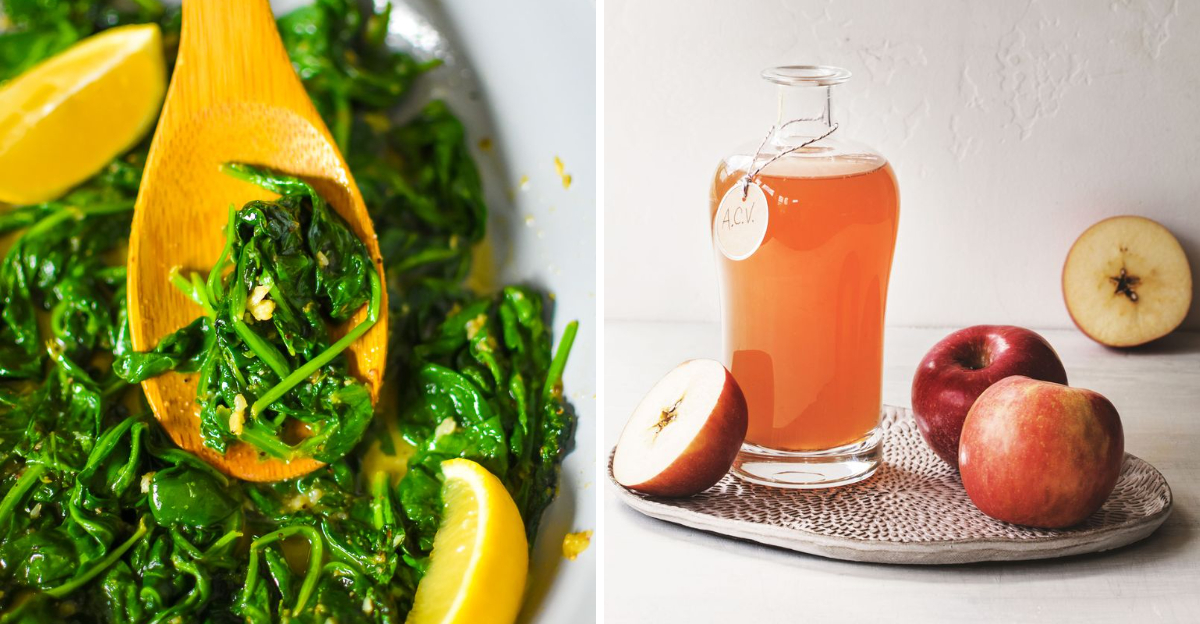
Kidney stones are a painful condition that can disrupt daily life. Some foods can contribute to their formation, while others can help prevent them. This guide explores seven foods that may trigger kidney stones and nine that can help you avoid them naturally.
1. Spinach
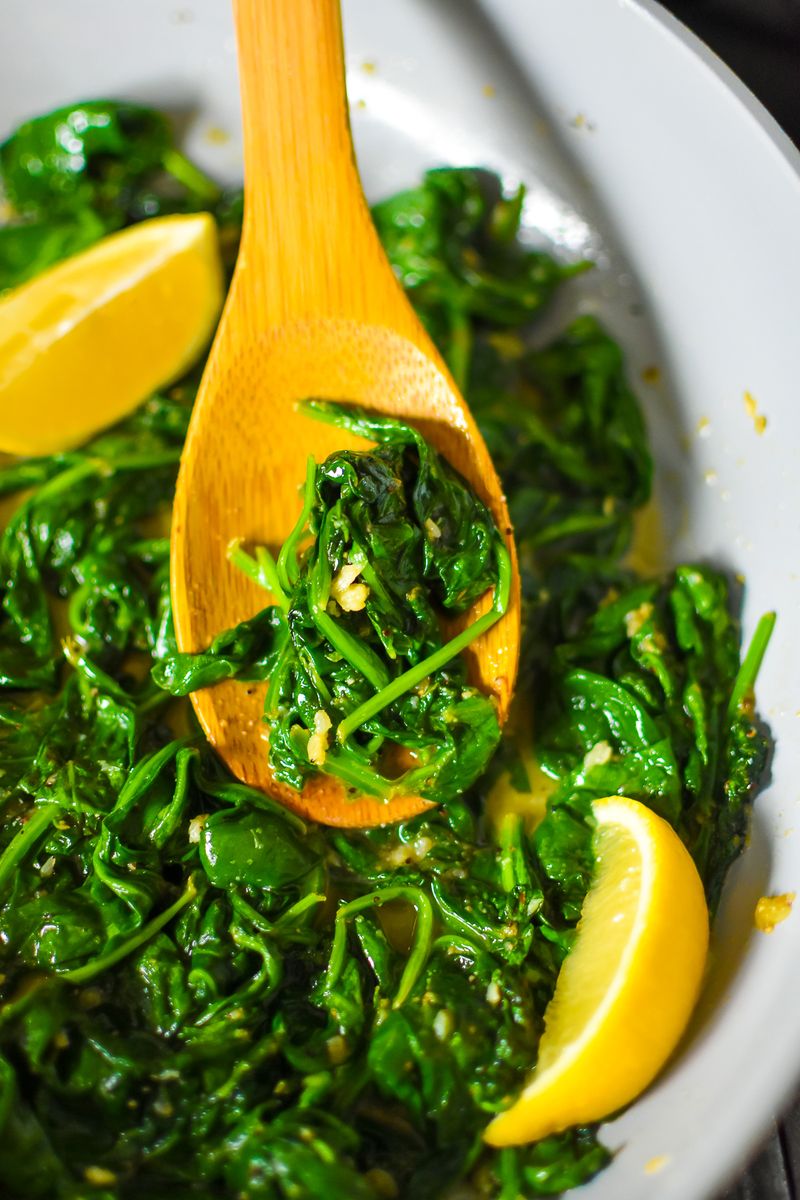
Spinach is often celebrated for its health benefits, yet it harbors a secret: high levels of oxalates. These compounds can contribute to the formation of calcium oxalate stones, the most common kidney stones. Imagine a leafy green that appears innocent but hides a potential risk. Cooked or raw, it’s a staple in many diets, but moderation is key for those prone to stones. Did you know? Spinach was once the favorite vegetable of Catherine de Medici, who had it served at every meal.
2. Beets
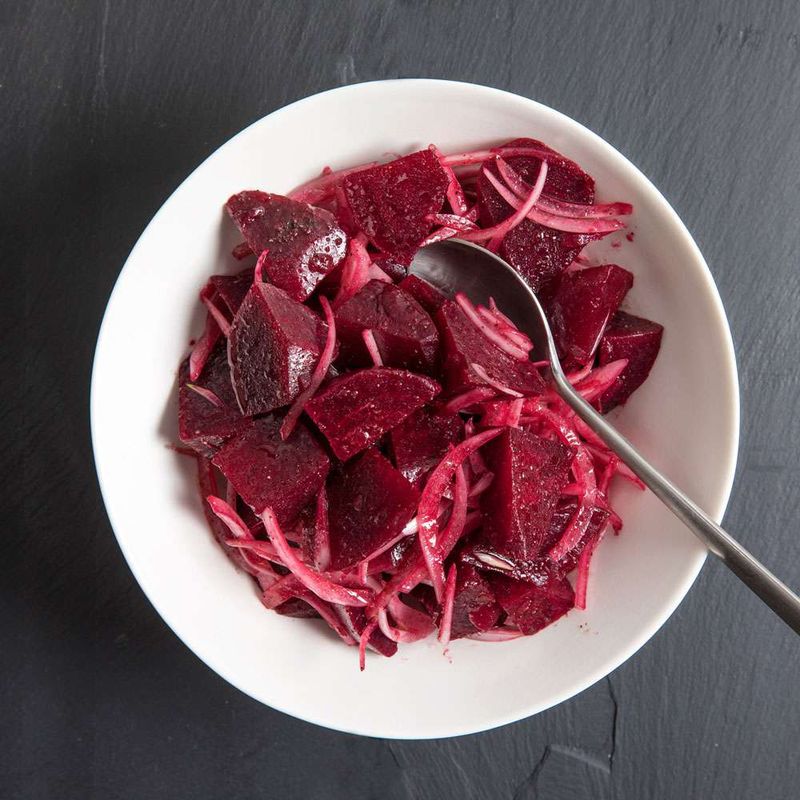
Beets stand out with their vibrant color and earthy flavor, but caution is advised. High in oxalates, beets can cause problems for those susceptible to kidney stones. They add depth to salads and dishes, making them a popular choice in gourmet cooking. Yet, their hidden risk may catch you off guard. Have you ever thought about the paradox of a vegetable that’s both nutritious and potentially problematic? It’s this dual nature that makes beets fascinating yet tricky to navigate for kidney health.
3. Nuts and Nut Butters
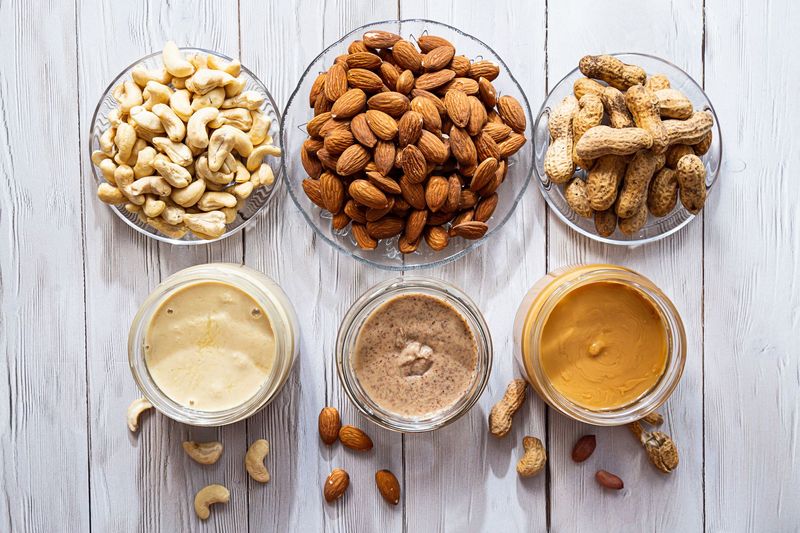
Nuts like almonds, cashews, and peanuts are beloved for their crunch and flavor. However, they come with a significant oxalate content that can lead to kidney stones if consumed excessively. Picture a handful of nuts, seeming harmless yet hiding complications for some. Whether enjoyed as a snack or in a creamy butter form, moderation is essential. History tidbit: The almond tree was cultivated as far back as 3000 BC, offering both nourishment and, for some, a health conundrum.
4. Animal Proteins

Animal proteins, especially red meat, play a prominent role in many diets. While rich in nutrients, they can increase uric acid levels, contributing to uric acid stones in susceptible individuals. Envision a juicy steak sizzling on the grill, appealing yet potentially risky. The balance between enjoying these proteins and maintaining kidney health can be delicate. Remember this: Ancient people in the Middle East were among the first to include red meat in their regular diets, unaware of the modern understanding of its effects.
5. Sodium
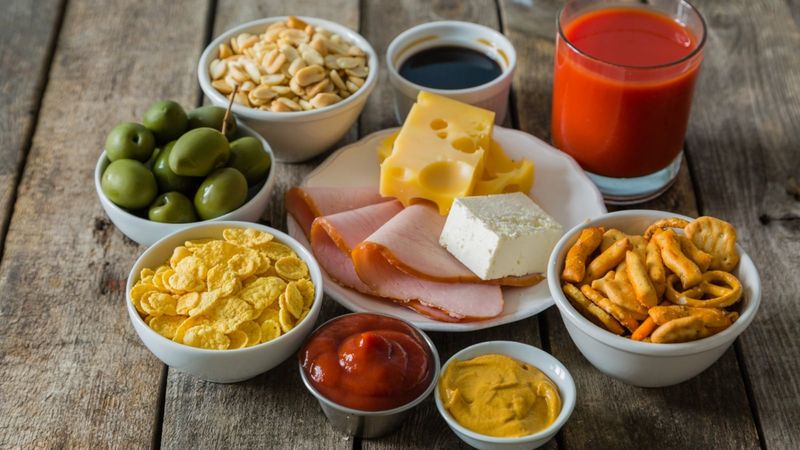
Sodium, often hidden in processed foods, can be a silent contributor to kidney stones. It increases calcium levels in urine, aiding stone formation. Consider this: a salt shaker at the dinner table, its contents seeming innocuous yet carrying potential health risks. Processed snacks, fast foods, and even soups may contain more sodium than expected. Interesting fact: Salt was once as valuable as gold, traded for its weight in ancient times. Today, its overuse can weigh heavily on kidney health.
6. Cola and Dark Sodas

Cola and dark sodas, with their refreshing fizz, also contain phosphoric acid, which has been linked to kidney stone formation. Imagine a chilled glass of cola, providing respite on a hot day yet carrying hidden risks. Their popularity makes them a common choice, but moderation is crucial. Fun fact: The first cola drink was created in the late 19th century, intended as a medicinal tonic. Today, its legacy continues, though the potential side effects on kidney health are better understood.
7. Rhubarb
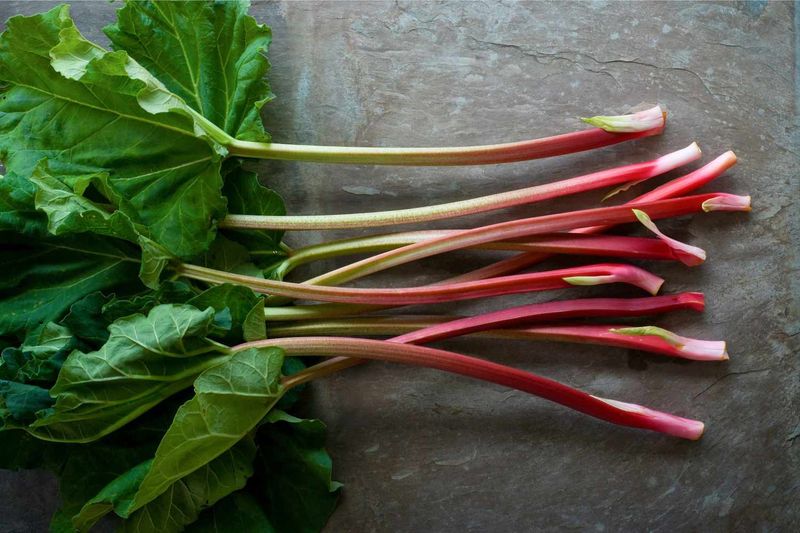
Rhubarb, with its tart flavor, is a unique addition to desserts and jams. However, it’s another oxalate-rich food that can contribute to kidney stone formation if consumed in large quantities. Picture a bundle of fresh rhubarb stalks, vibrant and inviting, yet holding a hidden challenge for kidney health. Its dual nature makes rhubarb a beloved yet cautious choice. Did you know? Rhubarb has been used in traditional Chinese medicine for over 2,000 years, valued for its purgative properties.
8. Water

Water is the simplest and most effective way to prevent kidney stones. Staying hydrated dilutes substances in urine that can form stones. Picture a refreshing glass of water, essential and life-giving. Drinking at least 8–10 cups a day can help keep stones at bay. Remember: Ancient Romans believed that water from certain springs could cure ailments. While we know more today, the basic principle of hydration remains key to kidney health.
9. Lemons and Limes

Lemons and limes are not only refreshing but also contain citrate, which helps prevent stone formation. Imagine slicing a lemon, its bright and zesty fragrance filling the air. Beyond their culinary uses, they play a vital role in kidney health by breaking up calcium deposits. Fun fact: In the 18th century, British sailors used lemon juice to prevent scurvy, showcasing its health benefits beyond just flavor. Today, their potential to support kidney health is well recognized.
10. Oranges and Orange Juice

Oranges and their juice offer more than just a burst of citrus flavor. Rich in citrate and vitamin C, they help reduce the risk of kidney stones. Picture a glass of freshly squeezed orange juice, invigorating and healthful. Their ability to keep stone risks low adds a beneficial angle to their delicious taste. Did you know? The cultivation of oranges dates back to ancient China, where they were prized not only for taste but also for their health benefits.
11. Bananas
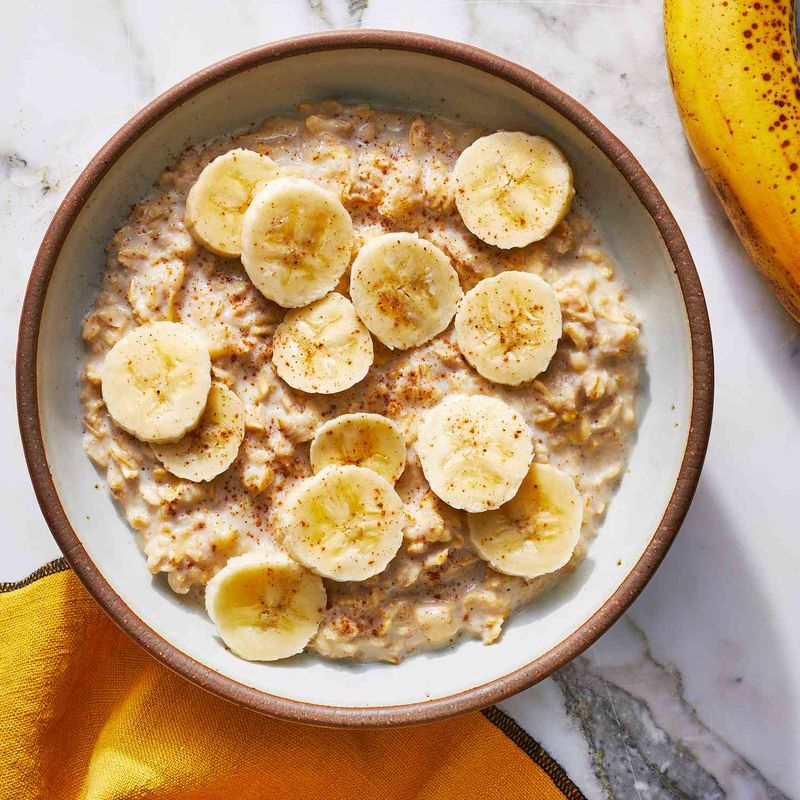
Bananas are more than just a convenient snack; they’re low in oxalates and high in potassium, which may help reduce calcium buildup in urine. Picture a ripe banana, its peel effortlessly removed, offering a sweet and satisfying bite. Their benefits for kidney health make them an excellent choice. A quirky fact: Bananas are technically berries, a detail that adds intrigue to this everyday fruit and its role in supporting well-being.
12. Whole Grains

Whole grains, including brown rice, oats, and whole wheat bread, provide a low-oxalate option that supports kidney health. Imagine a hearty bowl of brown rice, comforting and nourishing. Their fiber content aids digestion and contributes to overall wellness. Whole grains have been a dietary staple for millennia, with evidence of cultivation dating back to ancient civilizations. They continue to be a wise choice for those seeking to maintain a balanced diet and kidney health.
13. Calcium-Rich Foods

Calcium-rich foods, such as yogurt and fortified plant milks, might seem counterintuitive for kidney health. However, they bind to oxalates in the gut, preventing absorption into the bloodstream. Picture a creamy bowl of yogurt, topped with vibrant berries, offering both taste and health benefits. The key is avoiding high-oxalate calcium sources. Did you know? Ancient Greeks enjoyed yogurt as a staple, appreciating its nutritional value long before modern science confirmed its benefits.
14. Basil
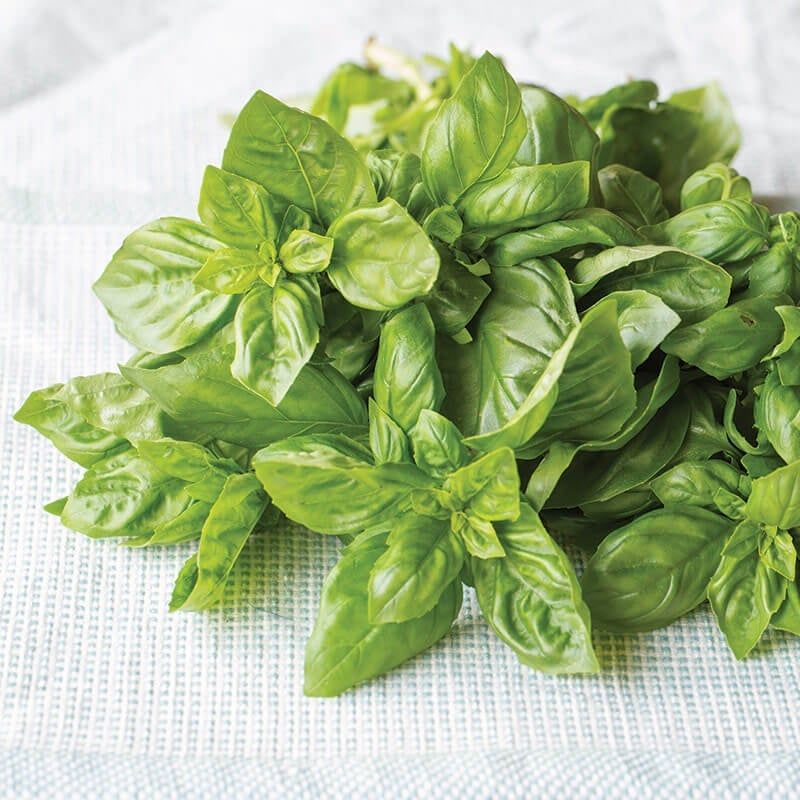
Basil, whether used fresh or as a tea, has properties that may support kidney function and help break down stones naturally. Visualize a handful of fresh basil leaves, their aroma filling the air. This herb has been cherished for its culinary and medicinal uses, from pesto to traditional remedies. Fun fact: Basil was once used as an antidote for snake bites in ancient cultures, illustrating its diverse applications beyond just seasoning.
15. Cucumber and Watermelon

Cucumber and watermelon are more than just refreshing summer treats; they’re high in water content and help flush the kidneys. Imagine a slice of watermelon, juicy and hydrating, paired with crisp cucumber. Their mild flavors make them a delightful addition to warm-weather meals. Did you know? Watermelon is believed to have originated in the Kalahari Desert, a testament to its ability to quench thirst and support health in arid climates.
16. Apples and Apple Cider Vinegar
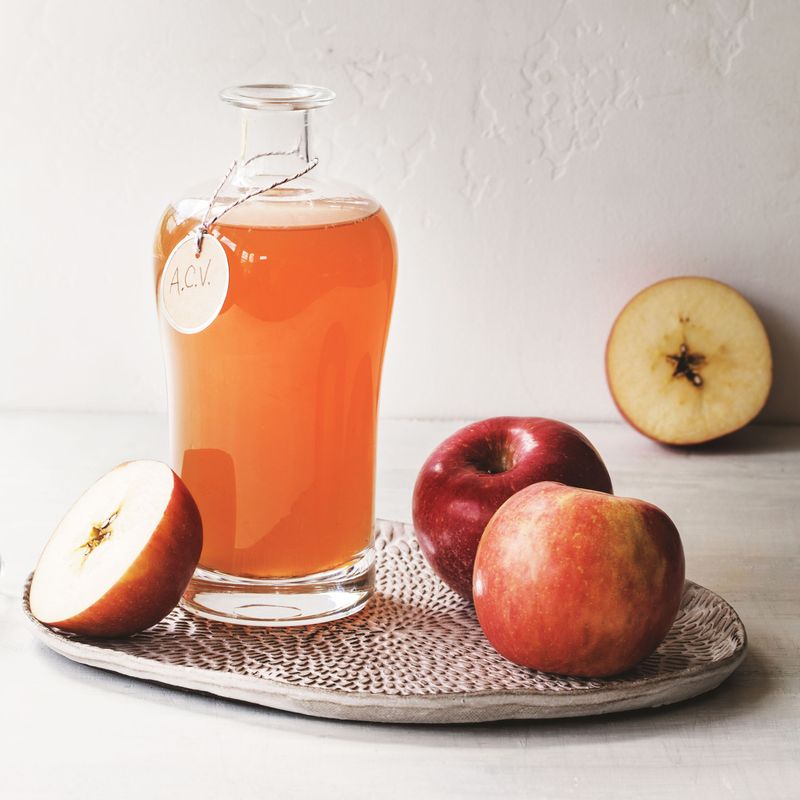
Apples and apple cider vinegar both offer kidney-friendly properties. Low in sodium and oxalates, apples are a simple yet effective choice. Imagine biting into a crisp apple, its sweetness balanced by a tangy undertone. Apple cider vinegar may help soften existing stones, thanks to its acetic acid content. A historical tidbit: Apples have been cultivated for thousands of years, beloved by ancient Greeks and Romans, proving their lasting appeal in both diet and health.
